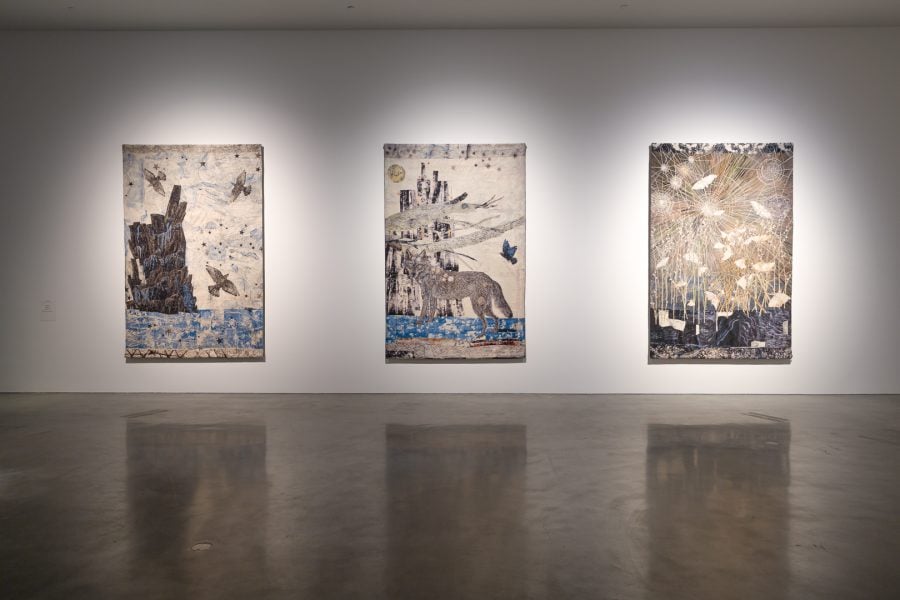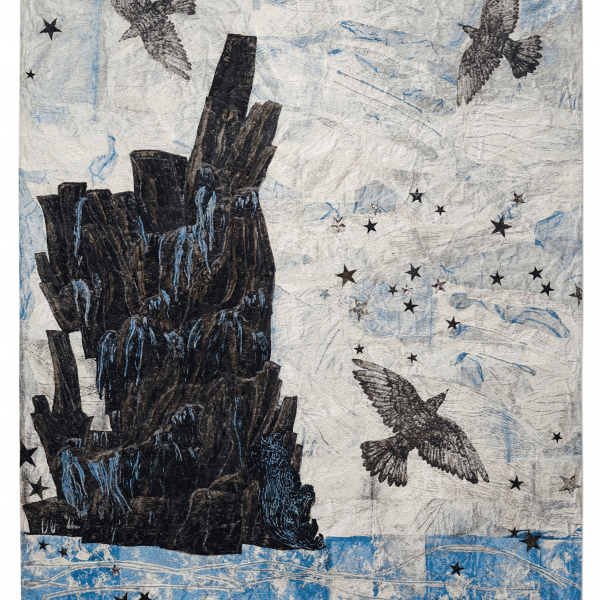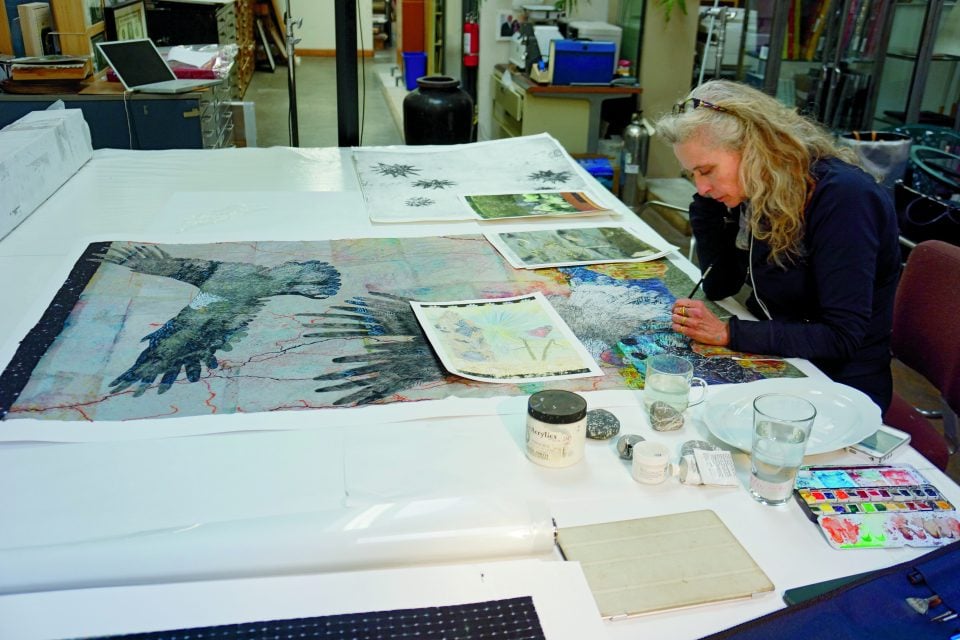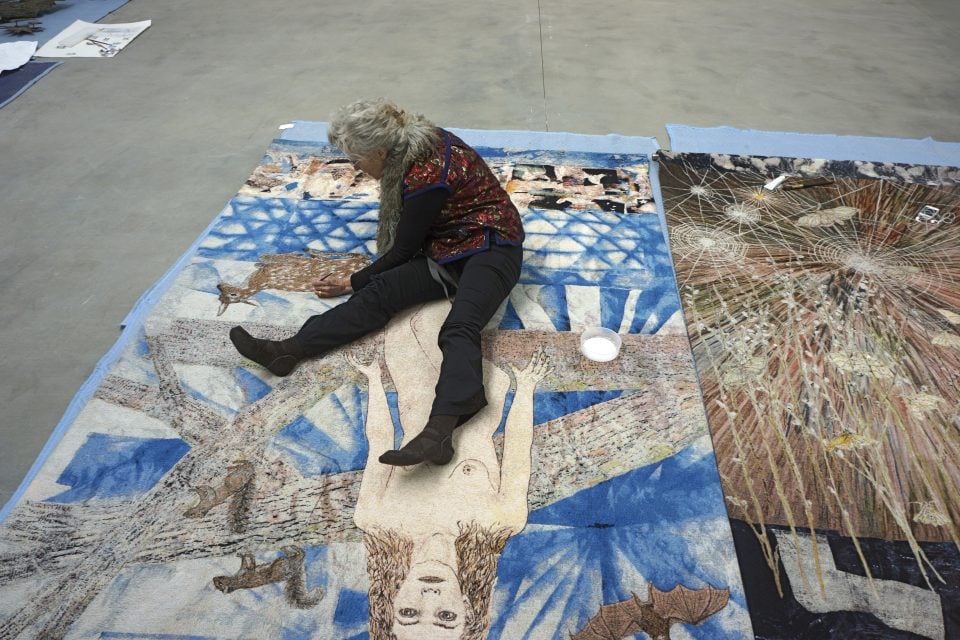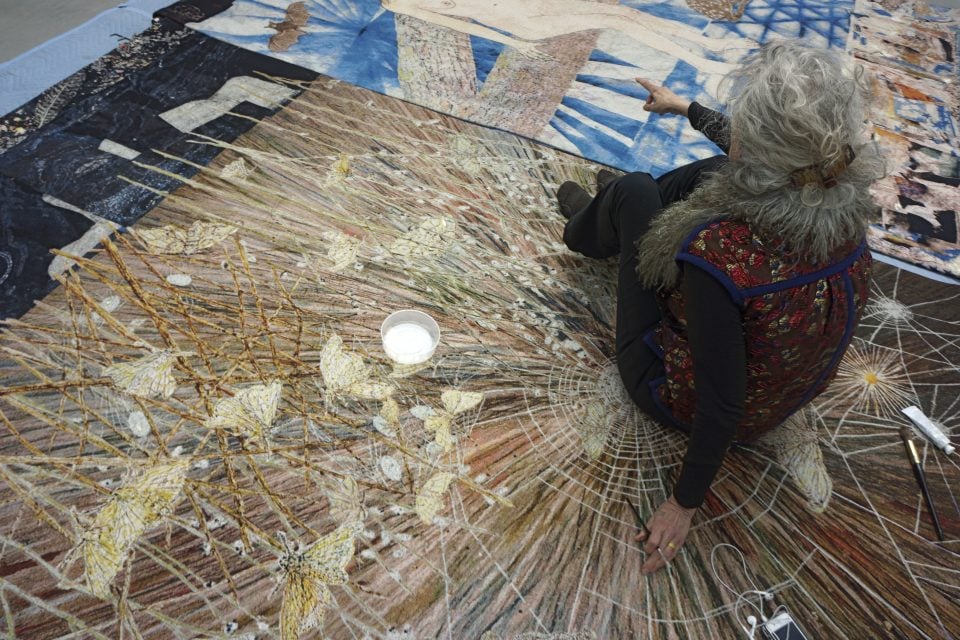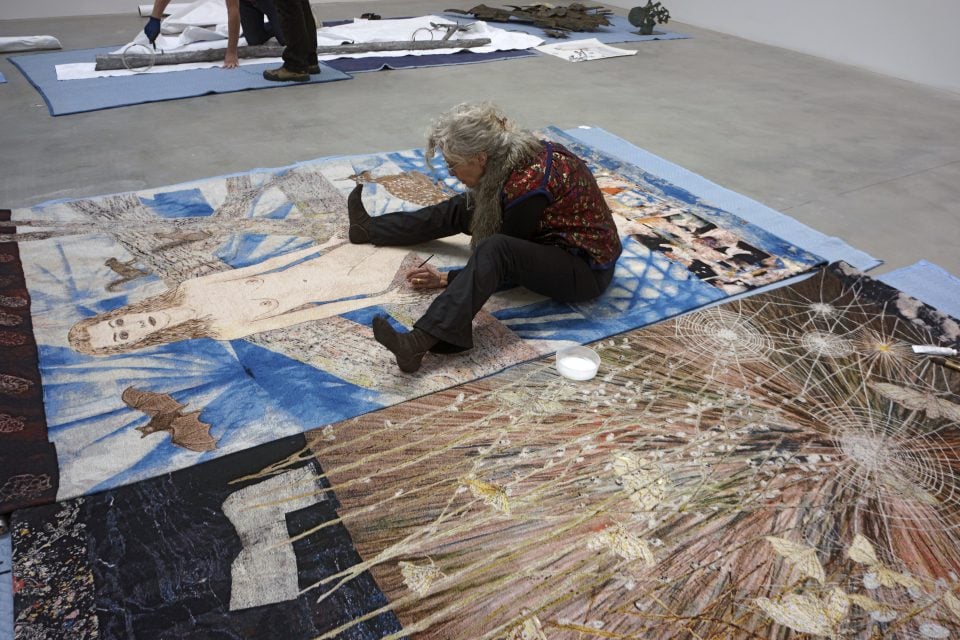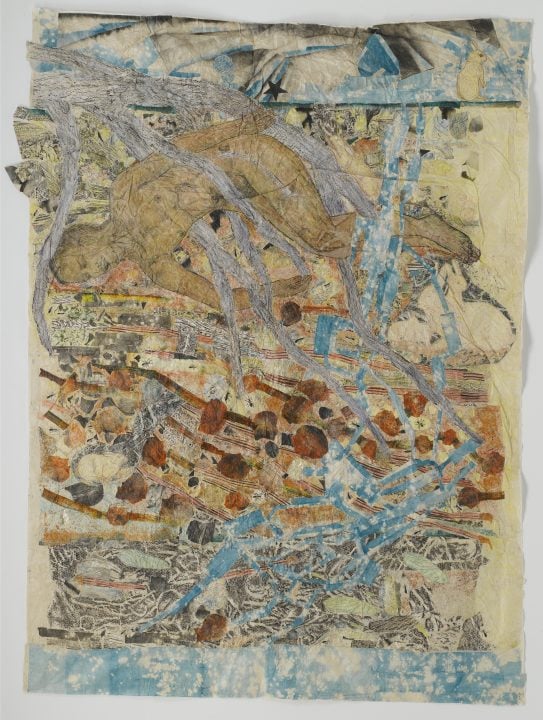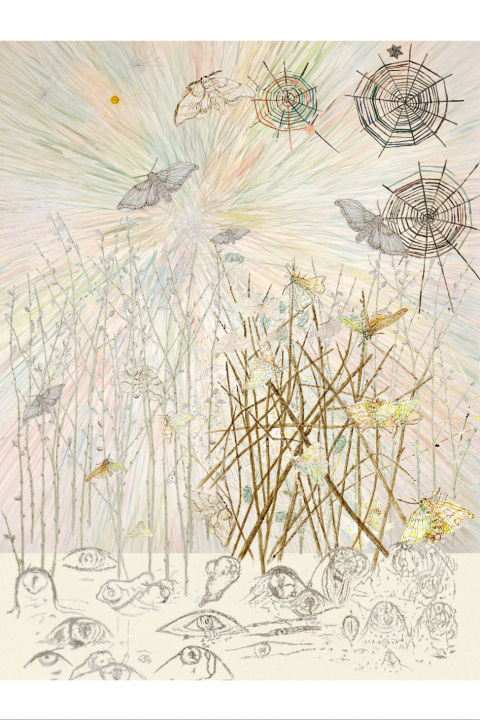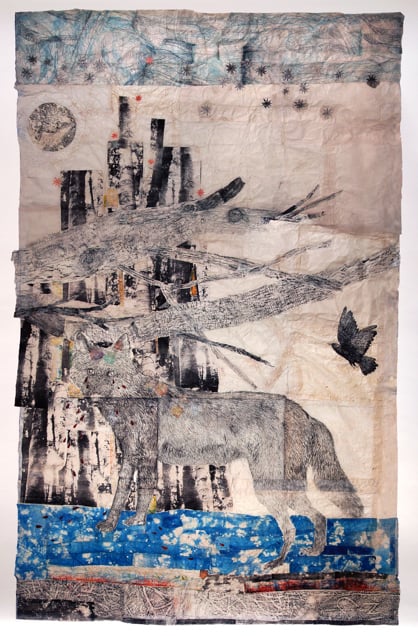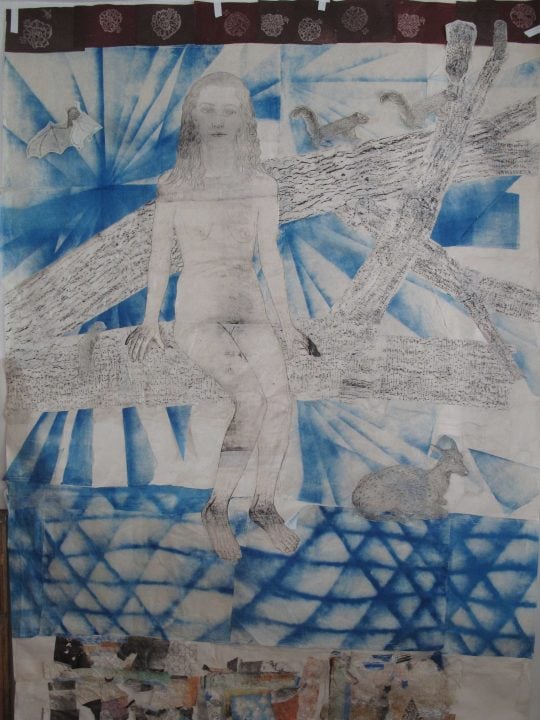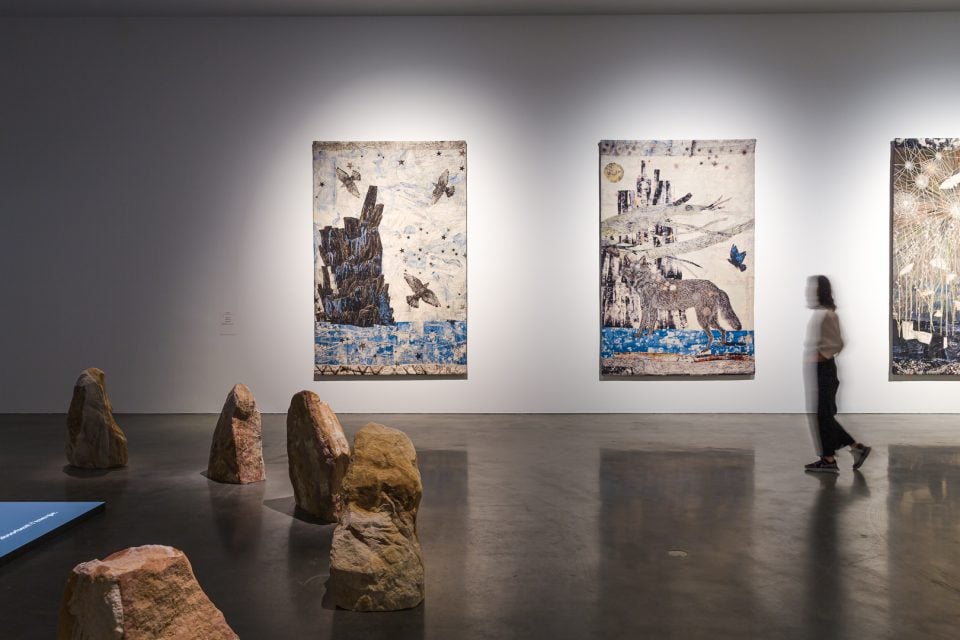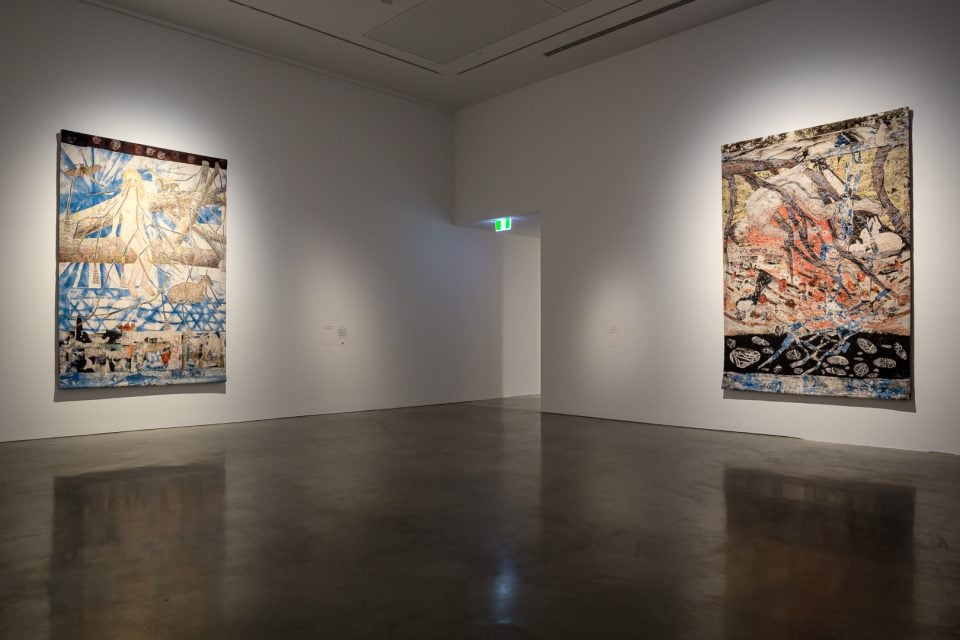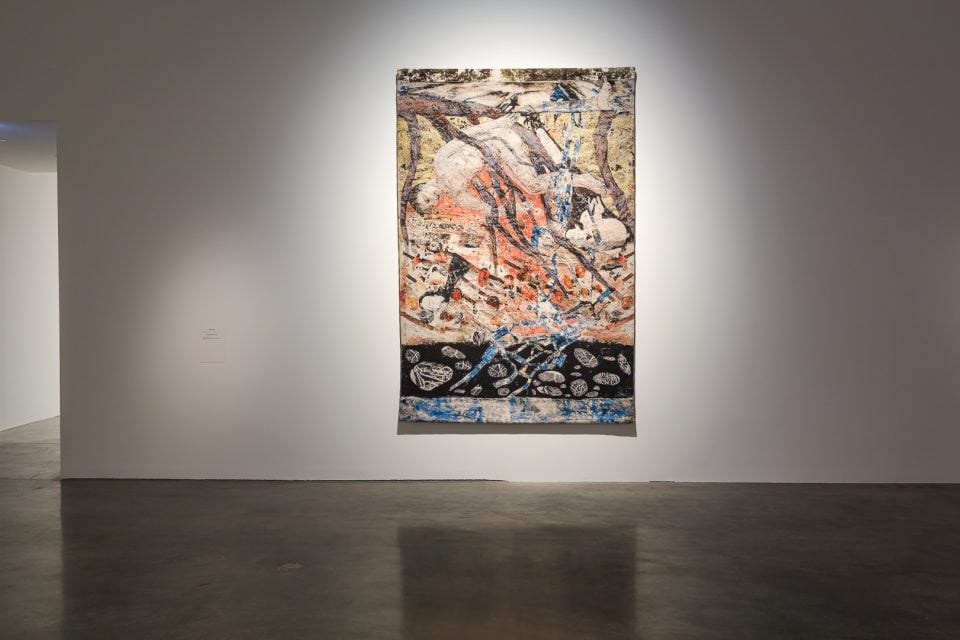Harbor, 2015
cotton Jacquard tapestry
Spinners, 2014
cotton Jacquard tapestry, hand-painting and gold leaf
Congregation, 2014
cotton Jacquard tapestry
Cathedral, 2013
cotton Jacquard tapestry
Underground, 2012
cotton Jacquard tapestry
Courtesy of the artist & Pace Gallery
Presentation at the 23rd Biennale of Sydney was made possible with generous support from Goethe-Institut Australia
Kiki Smith has been exhibiting her artwork internationally for over 30 years, but this is her first significant presentation in Australia. With a unique style that draws on mythology, folklore, fairytales, feminism and religious iconography, she often incorporates the human body as a form that unites us with one another, while also highlighting our interconnectedness with other non-human players: birds, wolves, wild forests and starlit skies feature prominently.
Each one of these five tapestries took a year to complete in a collaborative process between the artist and the Californian fine art print studio Magnolia Editions. Smith begins by constructing huge collages with Nepalese paper, glitter, pencil, watercolours and a host of other materials and textures, which are then photographed and printed at one-third the size for her to rework by hand. After numerous exchanges in this way each piece is finally converted into a tapestry via a complex, automated weaving process on a Jacquard loom. Despite the uniform surface of the tapestries, their beginning as multi-layered collages remains evident.
The artist was inspired by the largest-known medieval tapestry, commissioned in 1373 and depicts an apocalyptic narrative from the Book of Revelation. Smith’s tapestries, too, evoke the apocalyptic, but from a contemporary standpoint of environmental degradation and species vulnerability.
“We are stressing the earth in very dramatic, unnecessary ways, and so it makes a lot more sense to say: Oh no, I am nature also… nature and me we have the same interests… we all have a better chance co-existing if we’re not so harmful.’ – Kiki Smith
